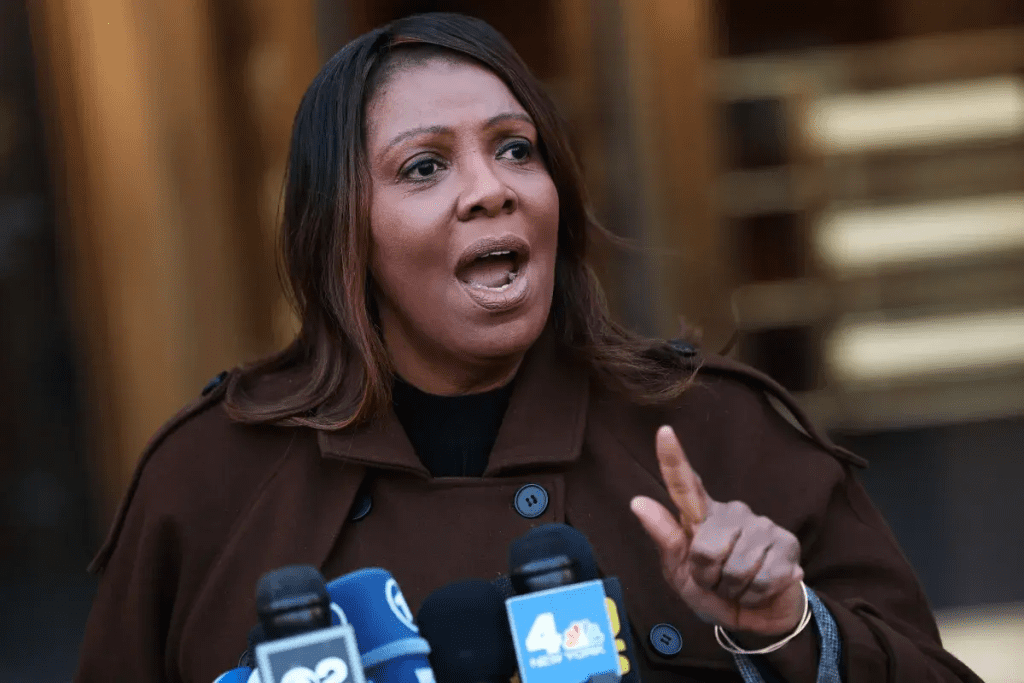DOJ Purge: How Two EDVA Prosecutors Were Fired, Escorted Out and Stripped of Clearance After Doubting the Letitia James Indictment
In a dramatic turn that has rocked Washington’s legal community, two federal prosecutors in Virginia’s Eastern District have reportedly been fired, stripped of their security clearances, and escorted from the building after raising serious concerns about the strength of the case against New York Attorney General Letitia James. The purge, authorized by Acting U.S. Attorney Lindsey Halligan, has unleashed outraged reactions and fresh scrutiny over political interference in a Justice Department already under siege.

The prosecutors, Elizabeth Yusi and Kristin Bird, were known to have expressed “skepticism” about charging James with mortgage fraud. According to media accounts, their reluctance to bring forward a case they believed was weak put them on a collision path with Halligan’s aggressive agenda. Sources say they were dismissed on Friday, immediately stripped of their security credentials, and physically escorted from the EDVA offices. The allegations were first reported by journalist Julie Kelly, citing inside sources.
Details remain murky, but the timing and context raise profound questions. Halligan, who has no prior prosecutorial experience, was installed as interim U.S. attorney after the previous lead, Erik Siebert, resigned under pressure from Donald Trump. Siebert had reportedly grown hesitant to bring charges against James and former FBI Director James Comey, citing weak evidence. In recent weeks, EDVA has become ground zero for turbulence. Even before Yusi and Bird’s removal, two senior prosecutors—Maya Song and Michael Ben’Ary—were already fired or forced out, following the Comey indictment and internal resistance to it. Ben’Ary, a high-level national security prosecutor, resigned a scathing letter decrying what he called a politically motivated purge that undermined national security.

Yusi’s situation had drawn public attention even before her firing. According to investigative reports, she had informed colleagues that she saw no probable cause to charge James—despite intense pressure from the top. That stance echoed Siebert’s earlier reluctance. Many legal observers saw her removal as the inevitable result of refusing to advance a politically charged prosecution.
The move has sparked alarm among career DOJ attorneys, civil liberties advocates, and legal scholars who warn this level of staff purges over policy and prosecutorial judgments is deeply dangerous. If prosecutors are canned for applying independent judgment, the Justice Department risks devolving into an arm of partisan will rather than a neutral arbiter of law. Already, questions swirl about Halligan’s qualifications and motivations. Before her appointment, she served as Trump’s personal lawyer and had no recorded record of prosecuting federal cases.

From a political lens, the purge reads as a bold stunt—a signal to other prosecutors that dissent won’t be tolerated. Halligan wasted no time in securing an indictment against Comey shortly after her appointment, overriding objections from veteran staff who judged the evidence too thin. Some insiders say the removal of Yusi and Bird is part of a broader strategy to eliminate perceived resistance and align staffing with Trump’s more aggressive prosecutorial posture.
To supporters, the firings are overdue action against what they perceive as a “deep state” unwilling to bring long-delayed charges. To critics, they are chilling — a red flag that the independence of prosecutors is under threat, and one that could discourage brave voices from raising concerns about overreach.
As details continue to trickle out, the public will be watching more than the fate of James or Comey. This moment may redefine the boundaries of DOJ autonomy and reshape how America thinks about justice and power. Will the Justice Department be judged on merit and evidence, or loyalty to political agenda? The dismissal of Elizabeth Yusi and Kristin Bird may prove to be one of the starkest answers yet.



